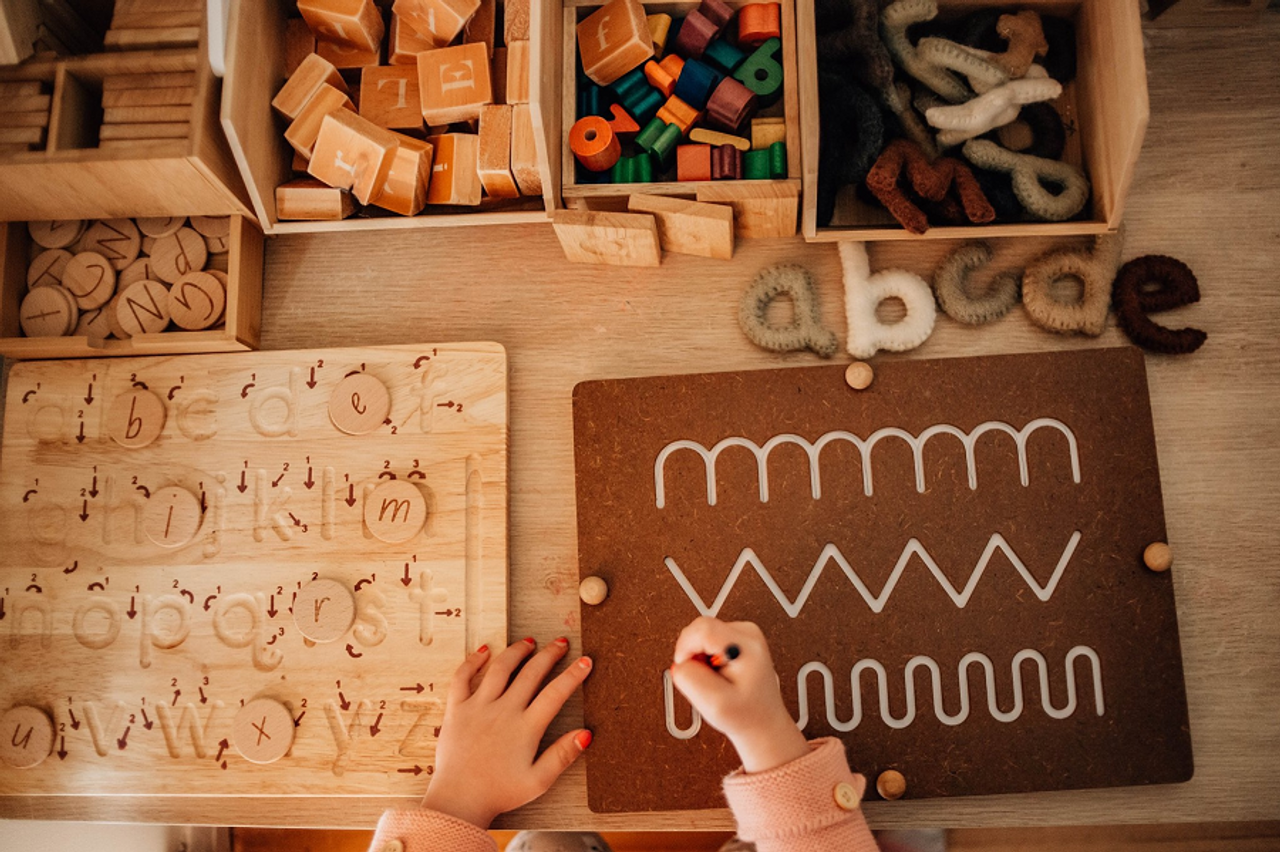How To Prepare Your Preschooler For Handwriting
Sep 16, 2024
You need to think about how to train child hand for writing long before they start school. Definitely, this does not mean that a preschooler has to be forced to sit at a table and learn to write. There are much more interesting and useful activities for this age, and they are focused on development of fine motor skills. Often, weak motor skills hinder a child from writing successfully at school. Preschoolers do not really listen, and their hands get tired quickly. So, the acquisition of writing skills should take place gradually, in stages, and should include a variety of exercises for developing arm muscles.
The ability to work deftly with fingers, which means to put the constructor, glue, cut, sew, and much more, has a positive effect on child’s development in general. But this is not just about mastering how to make something with hands. Development of language, thinking and intellect also depends on the development of fine motor skills. The ability to manage one’s fingers directly affects speech centres of the brain.
Fine motor skills in preschool age affect:
Speech development, memory, logic, thinking, attention, child’s readiness to write, and child’s intellectual development.
Development of fine motor skills and movement coordination starts from child birth: first, he grabs things in his fist and releases them, then tries to grab a toy, hit his palms, hold a spoon in his hand, but then learns to build a house from cubes, hold a pencil and draw lines on paper. This process ends with the start of school and requires lengthy finger dexterity training. In addition, the level of fine motor development of a child is considered one of the most important criteria for determining whether he is ready for school. Regular classes are required to reach the highest level of dexterity.
What Activities And Exercises Develop Fine Motor Skills Of Hands?
- Finger toys, theatre, and dice
- Physical exercises, such as climbing stairs, hanging on the exercise bar
- Creative activities: gluing, drawing, paper cutting
- Games with sand, flour, clay, any small objects and natural materials
- Construction, puzzle work, mazes, mosaic
- Exercises from Montessori Method
- Training of everyday skills: ability to dress and undress, pull and open zipper, pour a glass of water, clean the table with a cloth, help to prepare simple dishes
Games and activities for dexterity development should take place according to age. It is still permissible to return to simple exercises in the later years, but a baby cannot be forced to do what he is not yet capable of. It is desirable to maintain and systematize such activities. So, child’s skills are constantly improved.
Toys that will help your child practice and improve writing skills
QTOYS APPLE TRAY
Qtoys Apple Tray is very simple and super fun for children. It allows little ones to use their creativity to play with objects and loose parts, and create stories with each piece, or enjoy serving food.

QTOYS MY FIRST WRITING PAD
Qtoys My First Writing Pad is a fun activity for little ones to start their journey in education. The straight lines, curves and patterns are designed to aid in controlling hand movements and learning how to write well. You can put paper under the writing pad.

QTOYS WOODEN NUMBER TRACING BOARD
Qtoys wooden number tracing board is a fun activity that will give your child a fabulous opportunity to learn and recognize numbers. It will encourage your little one to learn numbers in a fun way. The wooden stylus will put your kid on the path to math literacy.

We hope you have enjoyed our range of toys. For more please press here

